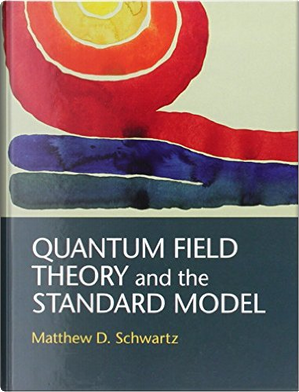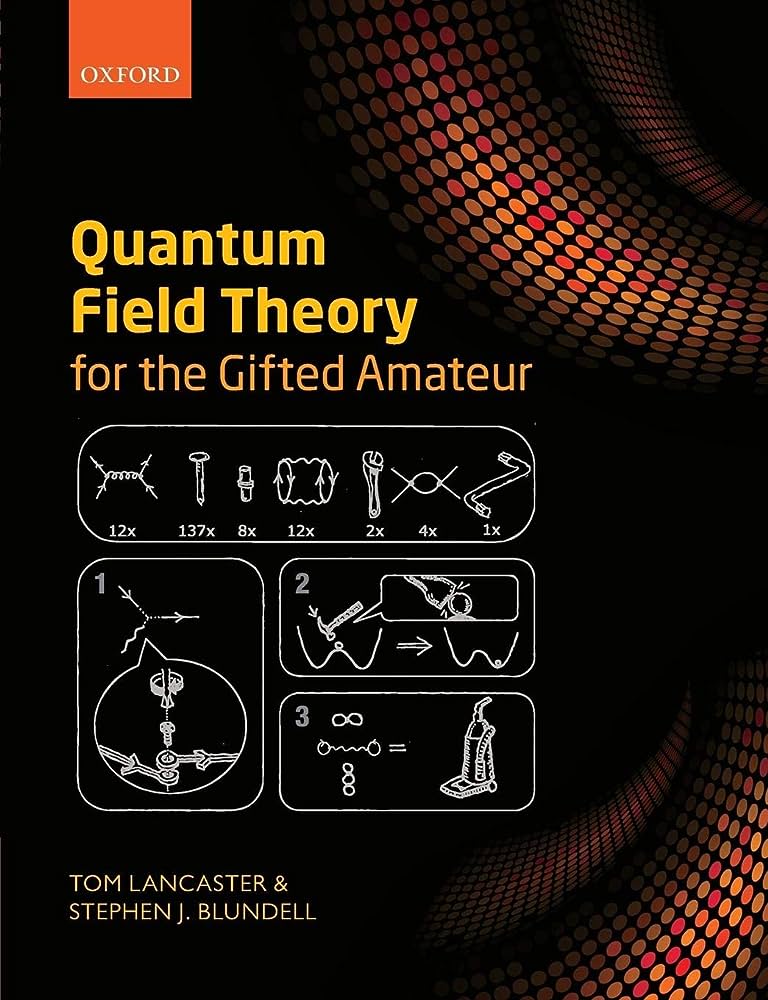Quantum field theory (QFT) literature
__
Disclaimer 1: Compared to other subjects, the number of good introductory textbooks in QFT is exponentially more. Everybody has a preference. Being a fairly advanced subject, different people from different backgrounds will have a unique taste when it comes to learning this beautiful subject. Firstly, I’ll write down the introductory textbooks with which you cannot go wrong.
Disclaimer 2: QFT is not easy to self-study. The pre-requisites are more than any course I’ve ever taken. The mode expansions, the symmetries, the gauge invariance and the cartoonish Feynman diagrams are not faint-hearted. It would be best if you had a ridiculous motivation and persistence to keep up with the subject.
Books
I believe the following books are very good for introducing the subject.
- Quantum Field Theory and the Standard model - Matthew Schwartz
Probably the best "Physics" book I have read. I cannot emphasise how good the book is at everything. Doing it for a self-study might be hard. But, it complements ANY QFT course. This is for people who want to be in HEP-Theory particularly. The first 13/14 chapters of the book would make the first course IMO. Ending on chapter 13 means you will compute the scattering amplitudes of tree-level diagrams in QED. Chapter 14 is the excellency of Feynman path integrals, which provide you with some very accessible techniques for computing time-ordered products.
Quantum field theory is misunderstood to be the theory that only combines special relativity and quantum mechanics. It’s much more than that. This fact can be made apparent by looking at the QFT techniques used in condensed matter physics. These techniques are more or less absent in Schwartz (The book is aimed at High energy community, and he covers many advanced topics in extreme detail, which are rarely found in other QFT books. So the absence is well justified).
Quantum Field Theory for the Gifted Amateur - Lancaster and Blundell

As the book says, it is for a “Gifted amateur”. Here “gifted” doesn’t necessarily mean super-intelligent or a genius. It means that you have not just completed your courses in theoretical physics but also understood the material very well. A typical first course would be Chapters 1-20. Then Chapters 34-40. Chapters 22-26 build up the integral path approach; this would depend on your professor’s taste. (To understand all the computations from 34-40, you need to understand the path integral approach).
Note: Before understanding all aspects of QFT well, I was convinced that QFT by Lancaster is the best book you could use. It is still one of my favourites, which is why I have mentioned it in the introduction to the subject textbooks. Why did Schwartz win my heart over Lancaster? One word - Simplicity. Lancaster tries to cover all the tools and techniques needed to tackle/understand actual QFT concepts/problems in the early 15 chapters. This can make you feel lost, as you are nearly a quarter into the book without doing any hardcore QFT computations. You can lose the big picture. Unlike Lancaster, Schwartz gets care of the utmost necessary stuff needed before delving into QFT in the first three chapters. After that, he introduces more tools as you are on the go. My best advice would be to use both books in tandem, with Schwartz as a primary. Because you will reach important results of QFT much earlier in Schwartz.
Advanced Books
An Introduction to Quantum Field Theory - Peskin, Schroeder
Quantum Field Theory - Mark Srednicki
Quantum Field Theory - Itzykson, Zuber
Freely available online sources
Lecture notes - Generally complement well in parallel to a formal course
🌟 Daniel Baumann’s lecture notes
Like all his other lecture notes, every calculation is explicit. No beating around the bush; he gets the job done concisely yet extremely precisely. Unfortunately only adequate up to an introductory course for QFT (But self-contained for that first course)Lecture notes for University of Mainz - Joachim Kopp (Based completely on Peskin as far as I can tell. Being in the introduction to QFT course, you can expect more explicit calculations)
Extras
- Excellent video summarising the renormalisation of QED - It is very easy to lose sight of your goal while doing extremely lengthy calculations while renormalising parameters in theory. The video does a fantastic job of summarising everything in less than 30 minutes.